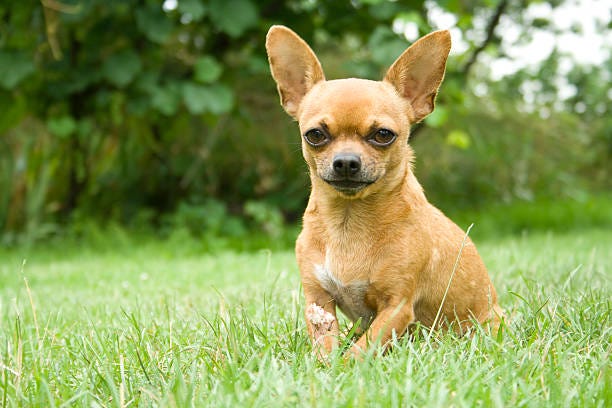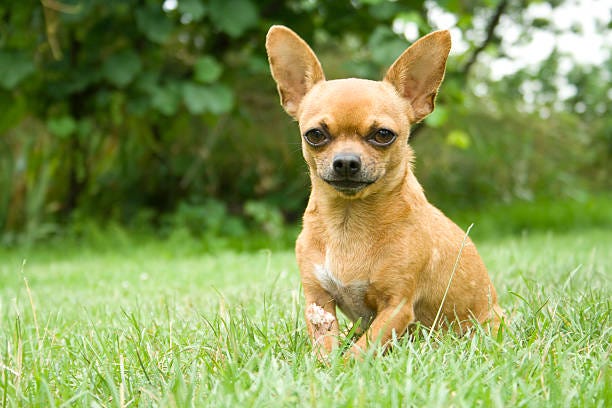

Question: I’ve only had medium- to large-sized dogs before, including an amazing German shepherd mix. Now I’m thinking of adopting a smaller dog … maybe a Chihuahua. What differences could I reasonably expect between this breed and what I’m used to.
Answer: I’ve met people over the years who “just didn’t like little dogs” and many times smaller dogs will automatically be labeled “yappers.” That’s not necessarily the case at all with small dogs, however. While I’ve never had anything smaller than an Australian shepherd myself, I totally understand why people like the little guys. I think subconsciously the biggest attraction to smaller dog ownership is that you can hold them, and there’s something nice about that. After all, we humans like physical contact.
Research has proven people with pets live longer, and I personally believe just petting your dog and telling him how much you love him probably adds years to your life. I also believe the love and affection we share with our dogs probably has a greater effect on us than it does on them, as this is a human thing. Dogs don’t particularly show that much affection toward other dogs. This is why love, affection, and praise is always our best reward when we’re training a dog.
All in all, dog psychology, across the board of hundreds of breeds, is pretty similar. Dogs are pack animals, so they automatically understand a hierarchy. In your dog’s world, you will either be a leader or a follower. A dog understands if you’re making appropriate rules and boundaries, you must outrank him. Dogs don’t have a conversation about this sort of thing. They demonstrate rank with energy and body language.

The only variable in dog psychology is where a dog falls on the dominance-and-submissiveness scale. A dog who is more dominant may be more challenging to train. Can he be trained though? Absolutely. The key always has something to do with meeting and exceeding your dog’s energy. A higher ranking dog has a somewhat more intense energy. If your dog is more submissive, “exceeding his energy” is a fairly easy task. The whole concept of “energy” is endemic dogs, but somewhat foreign to us.
While I am a proponent of doggie adoption, adopting a Chihuahua may be more challenging than raising one from a puppy. Dogs wind up in adoption situations for a variety of reasons. Many times down here, someone passes away, and there’s no one to take the dog. Sometimes people give up dogs because they can’t figure out how to fix a certain problem.
The challenges of helping an adult dog fit in to a new human pack could fall anywhere on the difficulty scale. But I work with many adopted dogs and usually they turn out to be wonderful pets. And the beautiful thing is that even if a dog comes to you with issues, those issues can almost always be worked out if you give him what he needs. Which is leadership and safety. I have seen even the most “messed up” dog ultimately fit right in to his new pack.
As far as the breed characteristics of Chihuahuas, they are bright, curious and loyal little dogs. They’re also territorial, which makes them pretty good watch dogs. They may sometimes overreact in terms of what an actual “intruder” is, but they can be trained to not be super barky. How challenging that would be depends on the dog … and you.
Chihuahuas are somewhat sensitive and need to be properly socialized. Otherwise, they can become fear biters. Obviously this might be more of a challenge with an older dog who has a history you don’t know.
At the end of the day, as it is with any dog, puppy or adopted older adult, our most important training tool is patience. That aspect is the main component that helped the troubled dogs I mentioned earlier. Their owners hung in there with love and patience, and ultimately those dogs came to fit quite nicely into their new family.
Originally from Louisiana, Gregg Flowers is a local dog trainer who “teaches dogs and trains people.” Contact him at dogteacher7@aol.com or dogsbestfriendflorida.com.